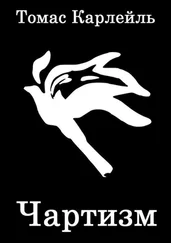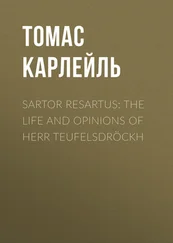Томас Карлейль - On the Choice of Books
Здесь есть возможность читать онлайн «Томас Карлейль - On the Choice of Books» — ознакомительный отрывок электронной книги совершенно бесплатно, а после прочтения отрывка купить полную версию. В некоторых случаях можно слушать аудио, скачать через торрент в формате fb2 и присутствует краткое содержание. Жанр: foreign_prose, Культурология, literature_19, foreign_edu, foreign_antique, на английском языке. Описание произведения, (предисловие) а так же отзывы посетителей доступны на портале библиотеки ЛибКат.
- Название:On the Choice of Books
- Автор:
- Жанр:
- Год:неизвестен
- ISBN:нет данных
- Рейтинг книги:3 / 5. Голосов: 1
-
Избранное:Добавить в избранное
- Отзывы:
-
Ваша оценка:
- 60
- 1
- 2
- 3
- 4
- 5
On the Choice of Books: краткое содержание, описание и аннотация
Предлагаем к чтению аннотацию, описание, краткое содержание или предисловие (зависит от того, что написал сам автор книги «On the Choice of Books»). Если вы не нашли необходимую информацию о книге — напишите в комментариях, мы постараемся отыскать её.
On the Choice of Books — читать онлайн ознакомительный отрывок
Ниже представлен текст книги, разбитый по страницам. Система сохранения места последней прочитанной страницы, позволяет с удобством читать онлайн бесплатно книгу «On the Choice of Books», без необходимости каждый раз заново искать на чём Вы остановились. Поставьте закладку, и сможете в любой момент перейти на страницу, на которой закончили чтение.
Интервал:
Закладка:
Thomas Carlyle
On the Choice of Books
BIOGRAPHICAL INTRODUCTION
There comes a time in the career of every man of genius who has devoted a long life to the instruction and enlightenment of his fellow-creatures, when he receives before his death all the honours paid by posterity. Thus when a great essayist or historian lives to attain a classic and world-wide fame, his own biography becomes as interesting to the public as those he himself has written, and by which he achieved his laurels.
This is almost always the case when a man of such cosmopolitan celebrity outlives the ordinary allotted period of threescore years and ten; for a younger generation has then sprung up, who only hear of his great fame, and are ignorant of the long and painful steps by which it was achieved. These remarks are peculiarly applicable in regard to the man whose career we are now to dwell on for a short time: his genius was of slow growth and development, and his fame was even more tardy in coming; but since the world some forty years ago fairly recognised him as a great and original thinker and teacher, few men have left so indelible an impress on the public mind, or have influenced to so great a degree the most thoughtful of their contemporaries.
Thomas Carlyle was born on Tuesday, December 4th, 1795, at Ecclefechan, a small village in the district of Annandale, Dumfriesshire. His father, a stone-mason, was noted for quickness of mental perception, and great energy and decision of character; his mother, as affectionate, pious, and more than ordinarily intelligent; 1 1 James Carlyle was born in August, 1758, and died January 23, 1832. His second wife (whose maiden name was Margaret Aitken), was born in September, 1771, and died on Christmas Day, 1853. There were nine children of this marriage, "whereof four sons and three daughters," says the inscription en the tombstone in the burial-ground at Ecclefechan, "survived, gratefully reverent of such a father and such a mother."
and thus accepting his own theory, that "the history of a man's childhood is the description of his parents' environment," Carlyle entered upon the "mystery of life" under happy and enviable circumstances. After preliminary instruction, first at the parish school, and afterwards at Annan, he went, in November, 1809, and when he was fourteen years old, to the University of Edinburgh. Here he remained till the summer of 1814, distinguishing himself by his devotion to mathematical studies then taught there by Professor Leslie. As a student, he was irregular in his application, but when he did set to work, it was with his whole energy. He appears to have been a great reader of general literature at this time, and the stories that are told of the books that he got through are scarcely to be credited. In the summer of 1814, on the resignation of Mr. Waugh, Carlyle obtained, by competitive examination at Dumfries, the post of mathematical master at Annan Academy. Although he had, at his parents' desire, commenced his studies with a view to entering the Scottish Church, the idea of becoming a minister was growingly distasteful to him. A fellow-student describes his habits at this time as lonely and contemplative; and we know from another source that his vacations were principally spent among the hills and by the rivers of his native county. In the summer of 1816 he was promoted to the post of "classical and mathematical master" at the old Burgh or Grammar School at Kirkcaldy. At the new school in that town Edward Irving, whose acquaintance Carlyle first made at Edinburgh, about Christmas, 1815, had been established since the year 1812; they were thus brought closely together, and their intimacy soon ripened into a friendship destined to become famous. At Kirkcaldy Carlyle remained over two years, becoming more and more convinced that neither as minister nor as schoolmaster was he to successfully fight his way up in the world. It had become clear to him that literature was his true vocation, and he would have started in the profession at once, had it been convenient for him to do so.
He had already written several articles and essays, and a few of them had appeared in print; but they gave little promise or indication of the power he was afterwards to exhibit. During the years 1820—1823, he contributed a series of articles (biographical and topographical) to Brewster's "Edinburgh Encyclopaedia," 2 2 Vols. XIV. to XVI. The fourteenth volume bears at the end the imprint, "Edinburgh, printed by Balfour and Clarke, 1820;" and the sixteenth volume, "Printed by A. Balfour and Co., Edinburgh, 1823." Most of these articles are distinguished by the initials "T.C."; but they are all attributed to Carlyle in the List of the Authors of the Principal Articles, prefixed to the work on its completion.
viz.:—
1. Lady Mary Wortley Montagu
2. Montaigne
3. Montesquieu
4. Montfaucon
5. Dr. Moore
6. Sir John Moore
7. Necker
8. Nelson
9. Netherlands
10. Newfoundland
11. Norfolk
12. Northamptonshire
13. Northumberland
14. Mungo Park
15. Lord Chatham
16. William Pitt.
The following is from the article on Necker :—
"As an author, Necker displays much irregular force of imagination, united with considerable perspicuity and compass of thought; though his speculations are deformed by an undue attachment to certain leading ideas, which, harmonizing with his habits of mind, had acquired an excessive preponderance in the course of his long and uncontroverted meditations. He possessed extensive knowledge, and his works bespeak a philosophical spirit; but their great and characteristic excellence proceeds from that glow of fresh and youthful admiration for everything that is amiable or august in the character of man, which, in Necker's heart, survived all the blighting vicissitudes it had passed through, combining, in a singular union, the fervour of the stripling with the experience of the sage ." 3 3 "In the earliest authorship of Mr. Carlyle," says Mr. James Russell Lowell, alluding to these papers, "we find some not obscure hints of the future man. The outward fashion of them is that of the period; but they are distinguished by a certain security of judgment, remarkable at any time, remarkable especially in one so young. Carlyle, in these first essays, already shows the influence of his master Goethe, the most widely receptive of critics. In a compact notice of Montaigne there is not a word as to his religious scepticism. The character is looked at purely from its human and literary sides."
Here is a passage from the article on Newfoundland , interesting as containing perhaps the earliest germ of the later style:—
"The ships intended for the fishery on the southeast coast, arrive early in June. Each takes her station opposite any unoccupied part of the beach where the fish may be most conveniently cured, and retains it till the end of the season. Formerly the master who arrived first on any station was constituted fishing-admiral , and had by law the power of settling disputes among the other crews. But the jurisdiction of those admirals is now happily superseded by the regular functionaries who reside on shore. Each captain directs his whole attention to the collection of his own cargo, without minding the concerns of his neighbour. Having taken down what part of the rigging is removable, they set about their laborious calling, and must pursue it zealously. Their mode of proceeding is thus described by Mr. Anspach, a clerical person, who lived in the island several years, and has since written a meagre and very confused book, which he calls a HISTORY of it ."
To the "New Edinburgh Review" (1821-22) Carlyle also contributed two papers—one on Joanna Baillie's "Metrical Legends," and one on Goethe's "Faust."
Читать дальшеИнтервал:
Закладка:
Похожие книги на «On the Choice of Books»
Представляем Вашему вниманию похожие книги на «On the Choice of Books» списком для выбора. Мы отобрали схожую по названию и смыслу литературу в надежде предоставить читателям больше вариантов отыскать новые, интересные, ещё непрочитанные произведения.
Обсуждение, отзывы о книге «On the Choice of Books» и просто собственные мнения читателей. Оставьте ваши комментарии, напишите, что Вы думаете о произведении, его смысле или главных героях. Укажите что конкретно понравилось, а что нет, и почему Вы так считаете.












